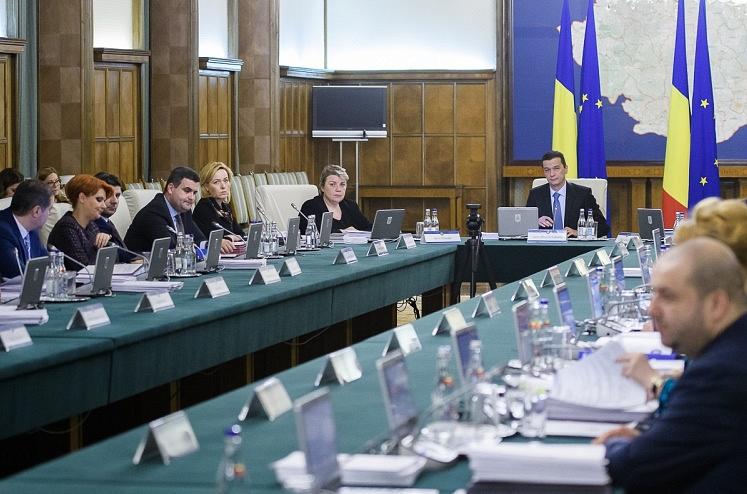Govt. passes pardoning to the Parliament but may approve Penal Code changes by emergency ordinance



Romania’s Government may let the Parliament vote on the pardoning of several thousand convicts, but may decide to change several provisions in the Penal Code and Penal Procedure Code by emergency ordinance, PSD senator Serban Nicolae, the leader of the Senate’s Judicial Committee said on Tuesday, according to local Antena 3 news channel.
He is the first PSD official who brings some light on the Government’s intentions related to the two controversial draft bills on justice, which have determined many negative political reactions and massive street protests in Romania in the past two weeks. The Justice Ministry published on January 18 two emergency ordinance drafts. One of the bills aimed to grant pardoning to several thousand convicted criminals in Romania and the other included significant changes on how some corruption crimes are defined in the Penal Code.
Both bills were highly criticized as they included provisions that would undermine Romania’s anticorruption fight if approved. The pardoning bill, which included provisions such as reducing the sentences of inmates over 60 by half, regardless of the crimes that they had been convicted for, got the most public opposition.
However, the other bill includes even more important provisions, such as redefining abuse of power and conflict of interest as well as changing the rules for making denounces. According to justice specialists, the measures included in this bill would partially decriminalize some important corruption offences and make it harder for the prosecutors to investigate others. This would also force the National Anticorruption Directorate (DNA) close the investigations on some local politicians charged with abuse of power.
Justice minister Florin Iordache held public consultations on the two draft bills on Monday, January 30, after which he said that both projects would be changed and unclear provisions would be eliminated. He avoided saying how he would proceed to have the two bills approved.
Local news site Hotnews.ro, wrote on Tuesday that the Sorin Grindeanu cabinet planned to pass the emergency ordinance on changing the Penal Code and Penal Procedure Code in the Wednesday meeting, quoting political sources. According to Hotnews, the ordinance will include some changes compared to the first draft, but its exact form is not known yet. The Government and the Justice Ministry haven't made any statement to confirm or deny this on Tuesday.
The National Anticorruption Directorate (DNA) issued a new statement on Tuesday stressing that should abuse of power be redefined in the criminal law, this will result in closing over 2,100 cases currently investigated by its prosecutors. The measures would also encourage the public servants’ “abusive conduct, immorality, lack of honesty and ethics.” The changes would favor both those who will commit abuse of power offences as well as those who have been already charged or indicted for past offences.
According to DNA, between 2014 and 2016, some 1,171 people and 34 legal entities have been sent to court on abuse of power charges. The total damages in these cases amounts to over EUR 1 billion.
The General Prosecutor’s Office also issued a new point of view on the possible changes to the criminal law stating that although the Penal Code and Penal Procedure Code needed to be changed in accordance to the Constitutional Court’s decisions, so that corruption crimes are defined more clearly, the changes proposed by the Government exceeded the Constitutional Court’s recommendations.
One of the opposition leaders, Nicusor Dan, the president of Save Romania Union (USR) said he would joins protests that will take place in Bucharest’s Victoriei Square on Wednesday morning, starting 9:00 AM.
Moreover, a big protest will be organized on Sunday, one week after more than 90,000 Romanians went to the streets to express their opposition to the Government’s initiatives on justice. However, if the Government approved the emergency ordinance on the criminal code on Wednesday morning, another protests may be organized on Wednesday evening.
The European Commission, Germany and France have warned Romania in the past week that justice reform should continue and taking measures to reverse the fight against corruption would be a wrong signal and wouldn’t be beneficial for the country’s future.
editor@romania-insider.com